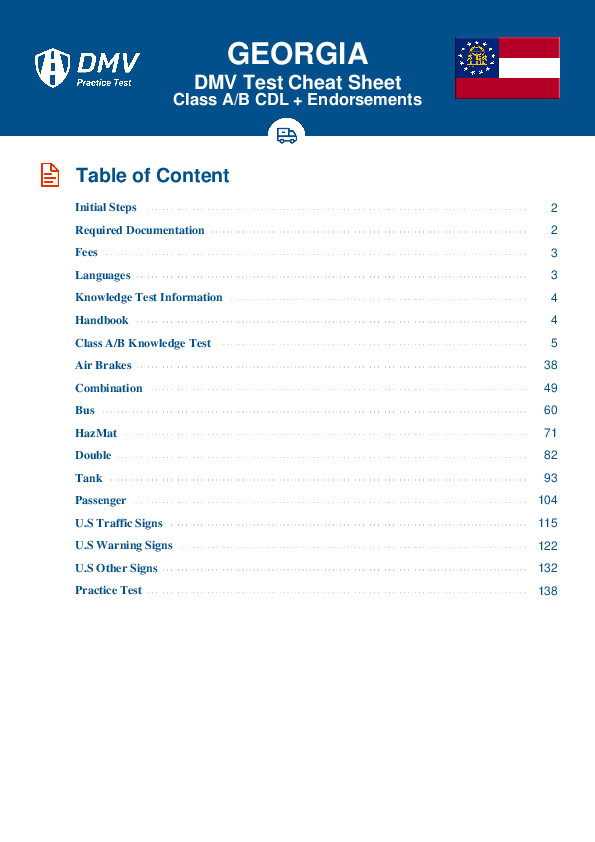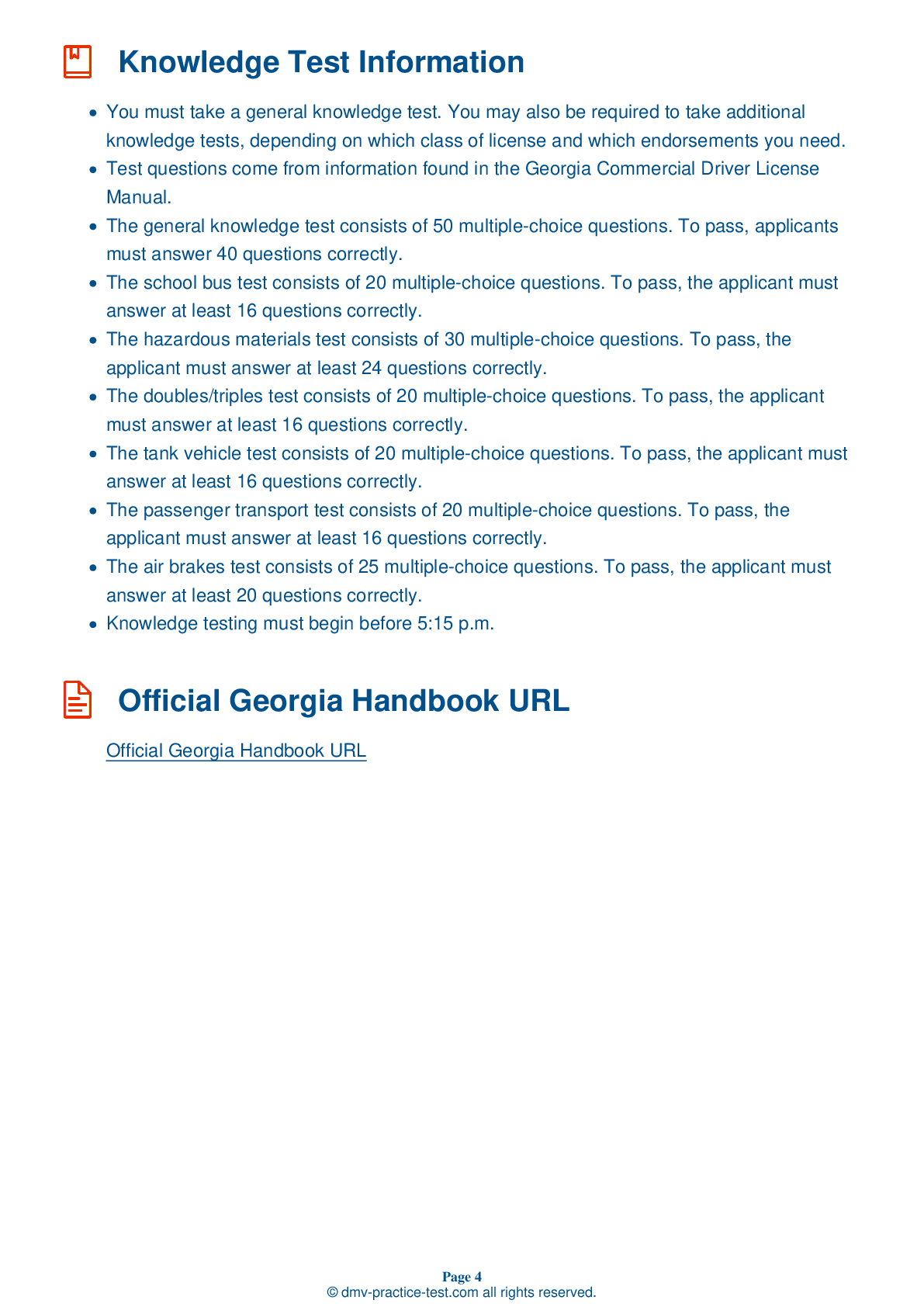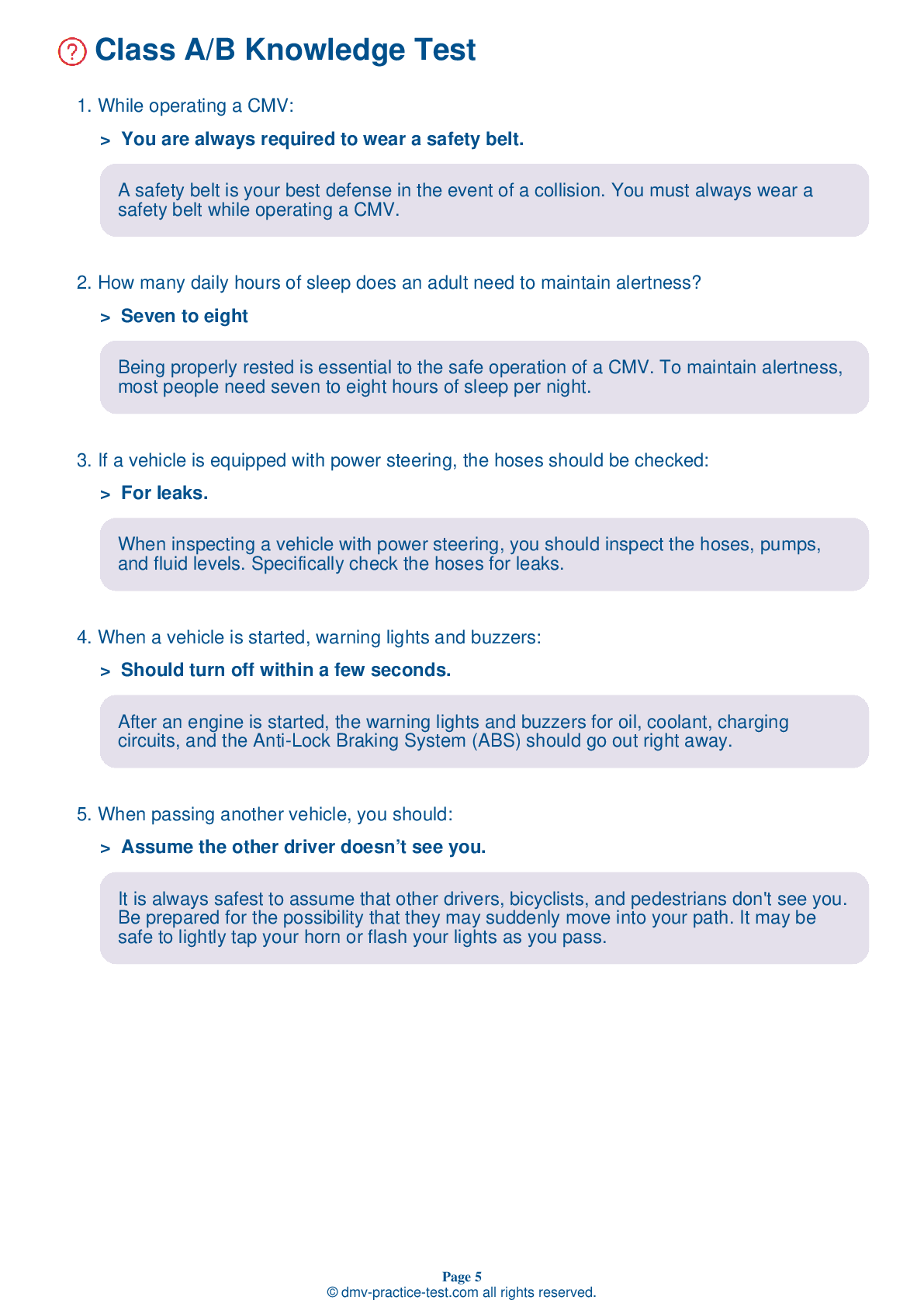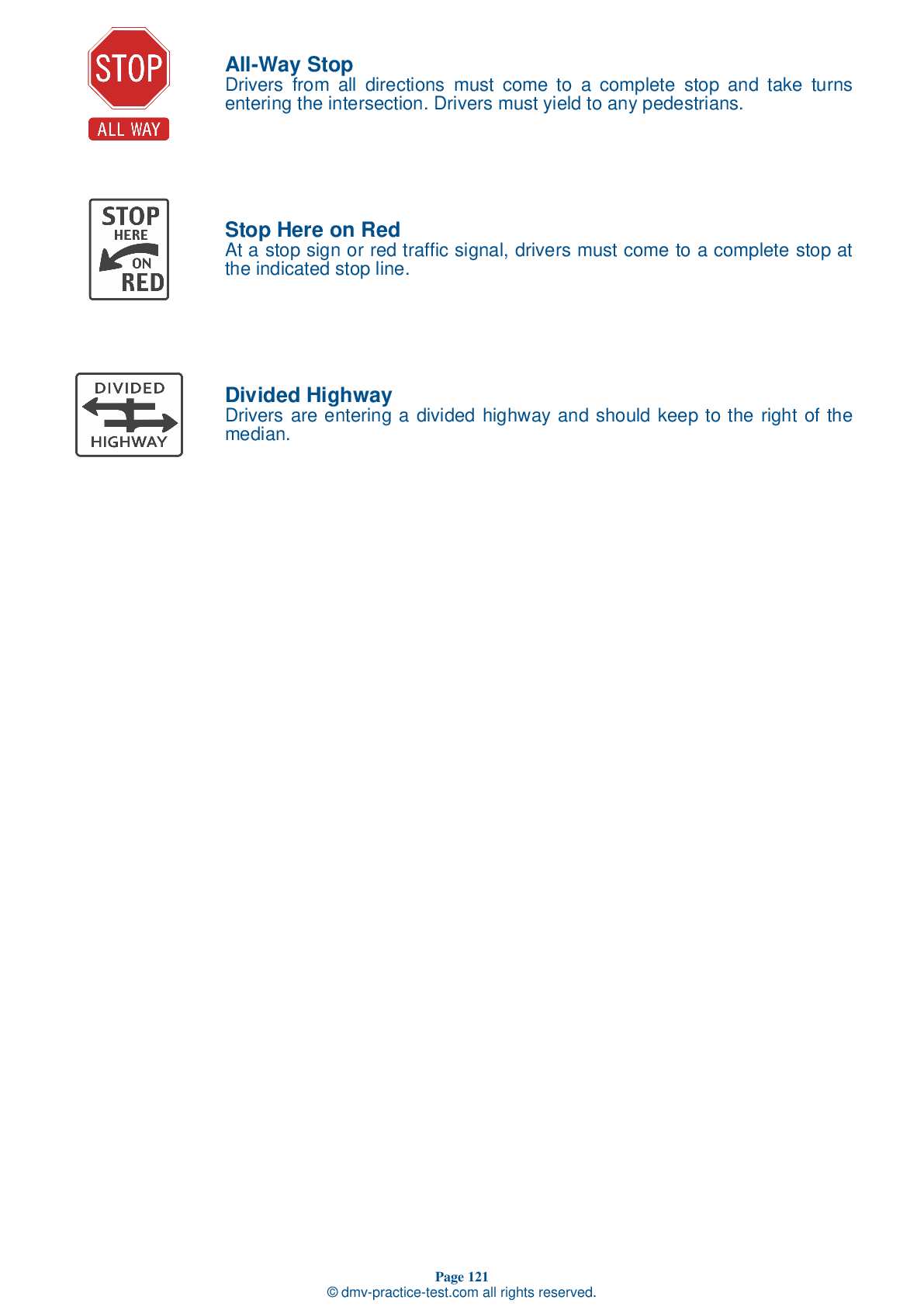HazMat #1
Hazmat Test | Georgia 2026 #1 Page 4 of 5
On our website, we provide FREE practice - CDL hazmat test online! The official exam test consists of several obligatory parts, with all of them checking your knowledge of different blocks of road rules. If you need to obtain a GA CDL hazmat endorsement in 2026, practice as much as possible. Free sample tests published on our website will help you check and improve your knowledge and boost your grades. Please bear in mind that Georgia requirements for issuing a hazmat endorsement for CDL may vary from those established in other states.
30
24
20
19 . If there is a collision involving a vehicle transporting Class 1 explosives, the driver should:
Remove the explosives from the vehicle before separating the vehicles involved in the collision.
If you are driving a vehicle that is transporting Class 1 explosives and it is involved in an accident, you should warn others of the danger, keep bystanders away, and not allow smoking or open fires near the vehicle. Before separating the vehicles involved in the collision, remove all explosives and place them at least 200 feet away from the vehicles and any occupied buildings.
20 . If transporting a package that contains radioactive materials, it is important to know that:
The package should be made of wood.
Radiation will surround each package of radioactive materials and pass through to all nearby packages. The number of packages that can be loaded together is controlled.
21 . A person supervising the loading of a tank:
Must stay within 25 feet of the tank.
The loading and unloading of a tank must be watched by a qualified person. They must be alert; have a clear view of the tank; stay within 25 feet of the tank; know the hazards of the materials involved; know the procedures to follow in an emergency; and be authorized and able to move the tank if necessary.
22 . Placarded vehicles must carry fire extinguishers with a minimum rating of:
5 B:C.
The power unit of a placarded vehicle must be equipped with a fire extinguisher with an Underwriters Laboratories (UL) rating of 10 B:C or more.
23 . If a product requires a "Poison Inhalation Hazard" placard, the placard must be used when transporting:
The product in a leaking container.
For applicable materials, the "Poison Inhalation Hazard" placard and the appropriate hazard class placard must always be displayed, even for small amounts of the materials.
24 . Identification numbers assigned to chemicals can be found:
At fuel stations.



